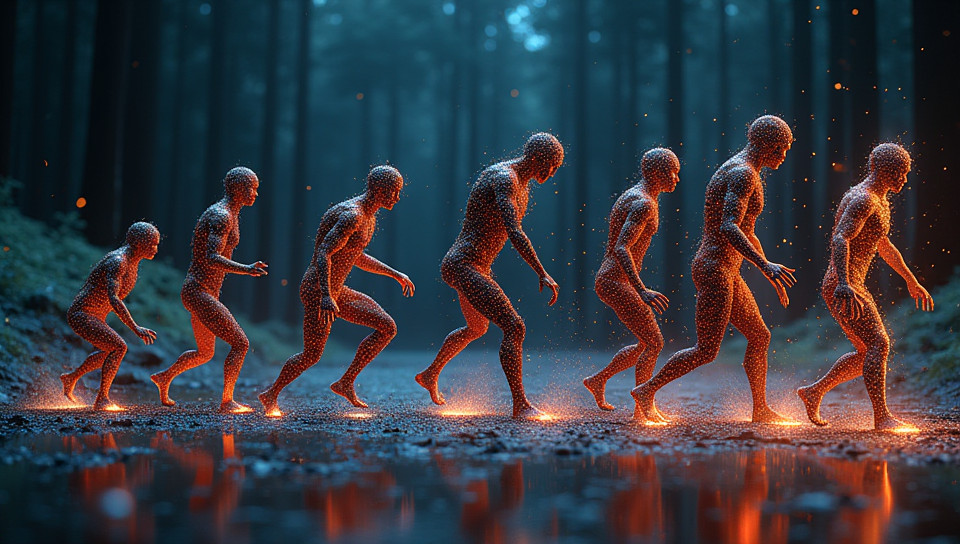Evolution arises from computational processes over time 72%

The Hidden Code of Evolution
As we gaze out at the vast tapestry of life on Earth, it's easy to overlook the intricate processes that have shaped our world over billions of years. From the simplest bacteria to the most complex organisms, evolution has been the driving force behind the incredible diversity of life on our planet. But what exactly is evolution, and how does it work its magic? In this article, we'll delve into the fascinating world of computational processes and explore how they give rise to the ever-changing landscape of life.
The Computational Nature of Evolution
Evolution is often viewed as a gradual process, with species slowly adapting to their environments over time. However, this perspective overlooks the fundamental role that computational processes play in shaping the evolution of life. At its core, evolution is a problem-solving activity, where organisms must adapt to changing conditions and optimize their chances of survival.
Computational Processes: The Building Blocks of Evolution
Computational processes are the underlying mechanisms that govern the evolution of life. They include:
- Selection
- Mutation
- Genetic drift
- Gene flow
These processes operate on the genetic level, influencing the distribution and variation of traits within populations. Through a series of computational steps, organisms modify their genetic makeup in response to environmental pressures, leading to the emergence of new species and the adaptation of existing ones.
The Algorithm of Evolution
Evolution can be viewed as an algorithm that operates on the genetic code of organisms. This algorithm takes in environmental data, processes it through a series of computational steps, and outputs new traits and characteristics that are better suited to the changing environment. This process is iterative, with each generation building upon the previous one, leading to the accumulation of complex adaptations over time.
The Power of Computational Processes
The study of computational processes has far-reaching implications for our understanding of evolution. By recognizing the algorithmic nature of evolutionary change, we can better appreciate the intricate mechanisms that have shaped life on Earth. This knowledge can also inform fields such as medicine, biotechnology, and conservation biology, where a deeper understanding of evolutionary processes is critical.
Conclusion
In conclusion, the evolution of life arises from computational processes over time. By recognizing the algorithmic nature of evolutionary change, we can better appreciate the intricate mechanisms that have shaped our world. The study of computational processes has far-reaching implications for our understanding of life and has the potential to inform a wide range of fields. As we continue to explore the mysteries of evolution, we are reminded of the awe-inspiring power of computational processes to shape the very fabric of life itself.
- Created by: Olivia Brunner
- Created at: Oct. 14, 2024, 5:51 a.m.
- ID: 12676
